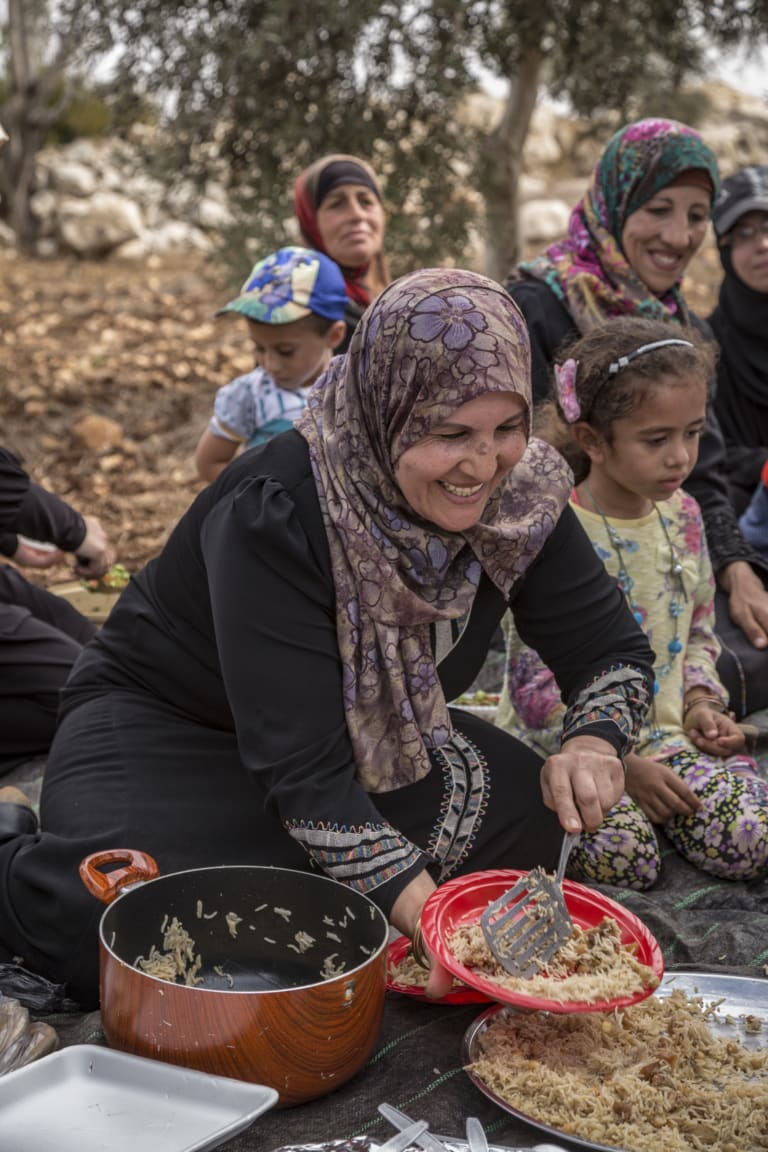
According to UN OCHA, 554 Palestinians have been killed in the West Bank since 7th October.
“During the reporting period, Israeli settlers perpetrated 23 attacks against Palestinians, resulting in two injuries and damage to property. Between 7 October 2023 and 15 July 2024, OCHA recorded 1,122 attacks by Israeli settlers against Palestinians, of which 105 led to Palestinian fatalities and injuries, 898 led to damage to Palestinian property, and 119 led to both casualties and property damage.”
We received an update from our friends in the West Bank this week who told us that the news that is being reported doesn’t come anywhere near reflecting what is actually happening on the ground.
“Almost every day, towns and refugee camps are being subjected to raids, arrests and demolition. The latest development is the deployment of the air force to carry out aerial bombings. “First they send in bulldozers to destroy infrastructure, then the military vehicles follow and then the bombs are dropped destroying whole neighbourhoods.”
“I was recently attempting to travel from Salfit to an area south of Jenin and encountered two checkpoints where a huge number of people were trying to get across every day. If they do a vehicle check that can hold up the queue for hours. And the checkpoints are often closed – that can be for one to three hours when there are no security incidents, but when there is an incident, this can be longer and when they are closed, settlers come out and harass people waiting.”
“It’s a similar situation if you try to travel from Nablus to Ramallah. The difficulty of movement is isolating cities, regions and communities from each other.”
There are now more than 700,000 settlers living in the West Bank and this number is set to increase.
Settler and military activity continue to get worse. There are more ‘volunteer’ settlers – now calling themselves “guardians of the mountains” appearing all the time. They often arrive on someone’s land with their animals and supplies and just stay there, with the backing and protection of the military. They are kept provided with supplies, and then attack the land owners who come near, most often with the weapons they’ve been given.
The settlers act with impunity and protection – and they think nothing of killing us. The level of violences indicates that to them Palestinians are not humans.
Having said that, foreign volunteers haven’t been spared either. Most recently a number of Americans have been beaten and injured by settlers in Qusra village.
Otherwise it’s more of the same: evictions from houses and land, demolitions, control of resources – especially access to water, and the prevention of development of any new infrastructure.
The Israeli government has recently approved the seizure of 12 sq km, one of the biggest land grabs in 30 years. As a result, a demographic shift is happening, with more land being occupied by settlers and and an increasing number of people living in rural communities being pushed out into highly populated urban areas. Their land is then confiscated, and the building of a new settlement begins.
“The farmers we work with are living every day in these condition and are concerned for their own safety. Access to their farms is constantly restricted. Farmers often leave at 5.00am or earlier to go work on their farms – but if it is still dark this is risky. Any settlers or military in the area are likely to treat this movement as suspicious and stop and harass them. Farmers are concerned for their own safety.”
Farmers like Doha Asous who came to the UK in February 2023 have all but abandoned their land that is close to the Yitzhar settlement.
“There is growing impact on movement of crops too. Getting product from the farms and groves to Burqin for instance is becoming much harder.”
“The almond harvest is happening now and soon growers will prepare to harvest their dates and after that the olives. There is an anticipation of worse problems than last year. There were farming families that never got to their groves last year – and there may be more stopped this year, with more blocks on by-pass roads etc. Some of those prevented from reaching their grove may have other land in other areas they can still farm. But others do not have this option and for them their source of livelihood is taken away. There is solidarity and support among the farmers in their communities though.”
There is tension building ahead of the harvests, but there is also determination to keep planning, to keep doing what we need to do. We insist on life, and on living.



